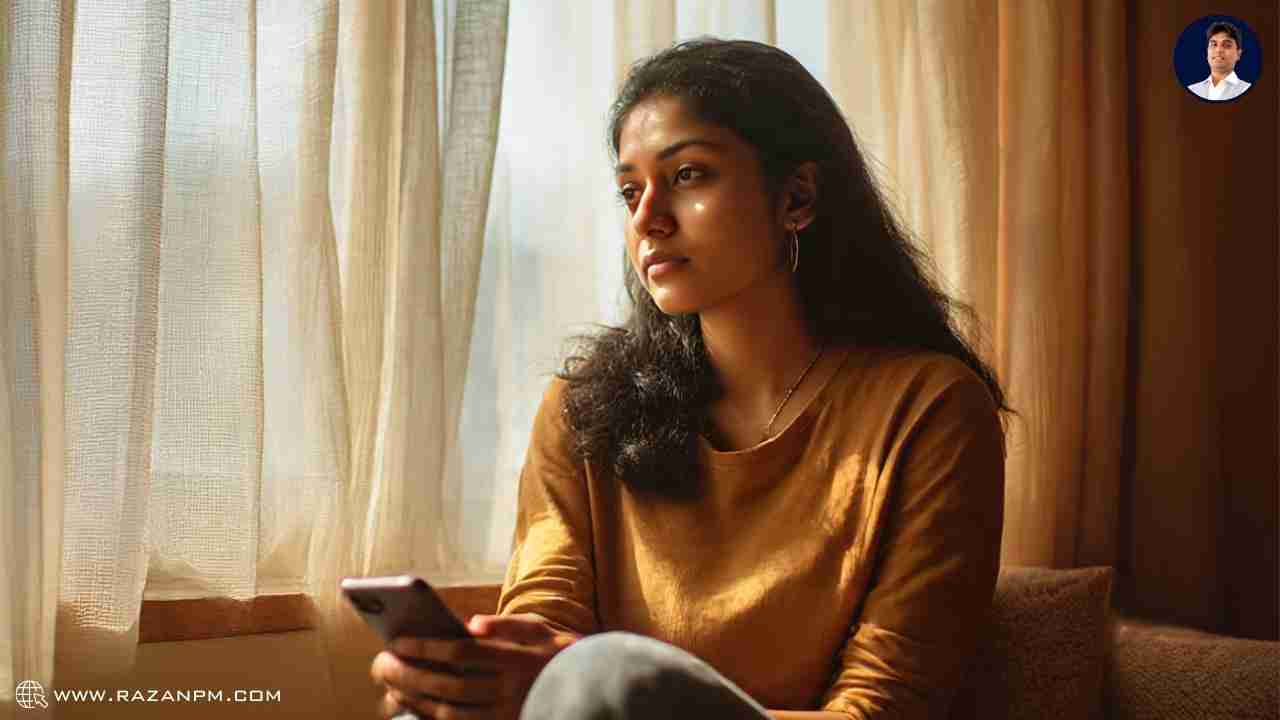“He left me on ‘seen’ for 2 hours… maybe he’s bored of me.”
You see, this one thought - small, innocent, relatable - can spiral into overthinking, self-doubt, and sometimes, emotional burnout.
Funny thing? The same phone that connects us to love also disconnects us from ourselves.
Welcome to the paradox of digital romance — where ‘online’ is our new love language, but ‘offline’ is where our hearts quietly cry.
also read: why love feels hot then cold?
Ever noticed how we now measure affection by response time, not emotional depth?
How “typing…” gives us hope, and “last seen 2 hours ago” breaks our heart?
For Gen Z, love lives inside the phone screen — swipes, streaks, and stories define connection.
But here’s the paradox: the more we connect digitally, the lonelier we often feel emotionally.
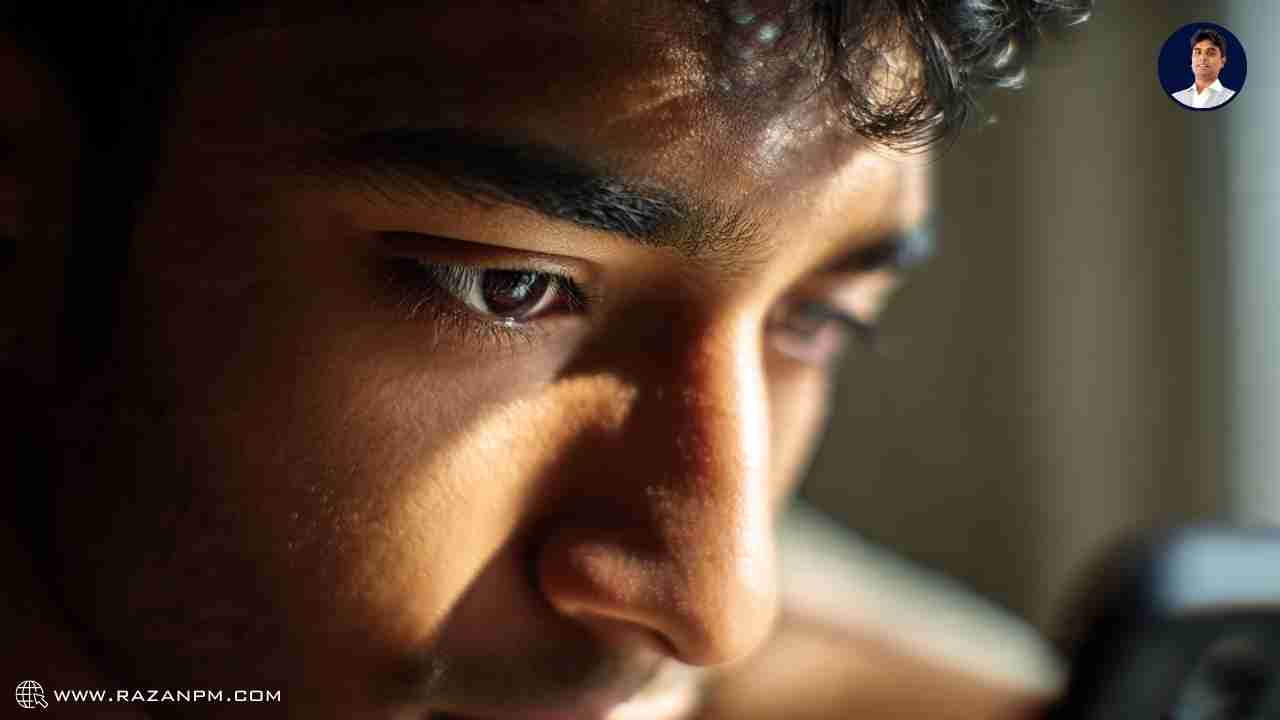
“Aaj kal breakup WhatsApp pe hota hai, healing Instagram pe hoti hai, aur loneliness YouTube shorts pe dhoondte hain.” 😅
We live in a world where digital romance gives instant dopamine hits, but long-term emptiness.
also read: 6 warning signs of depression thatincreases heart risk
You might relate to this —
You wake up, check your phone, hoping for that one “Good Morning” text.
You post something deep on your story just to see if they’ll view it.
And when they don’t reply for hours… your mind whispers,
“Maybe I’m not enough. Maybe they’ve moved on.”
That constant emotional validation seeking becomes exhausting.
You’re emotionally present but mentally drained.
Your phone is full of chats, but your heart feels empty.
This is what I call “Digital Loneliness.”
It’s invisible, silent, yet deeply painful.
also read: why small fights turn into bigarguments?
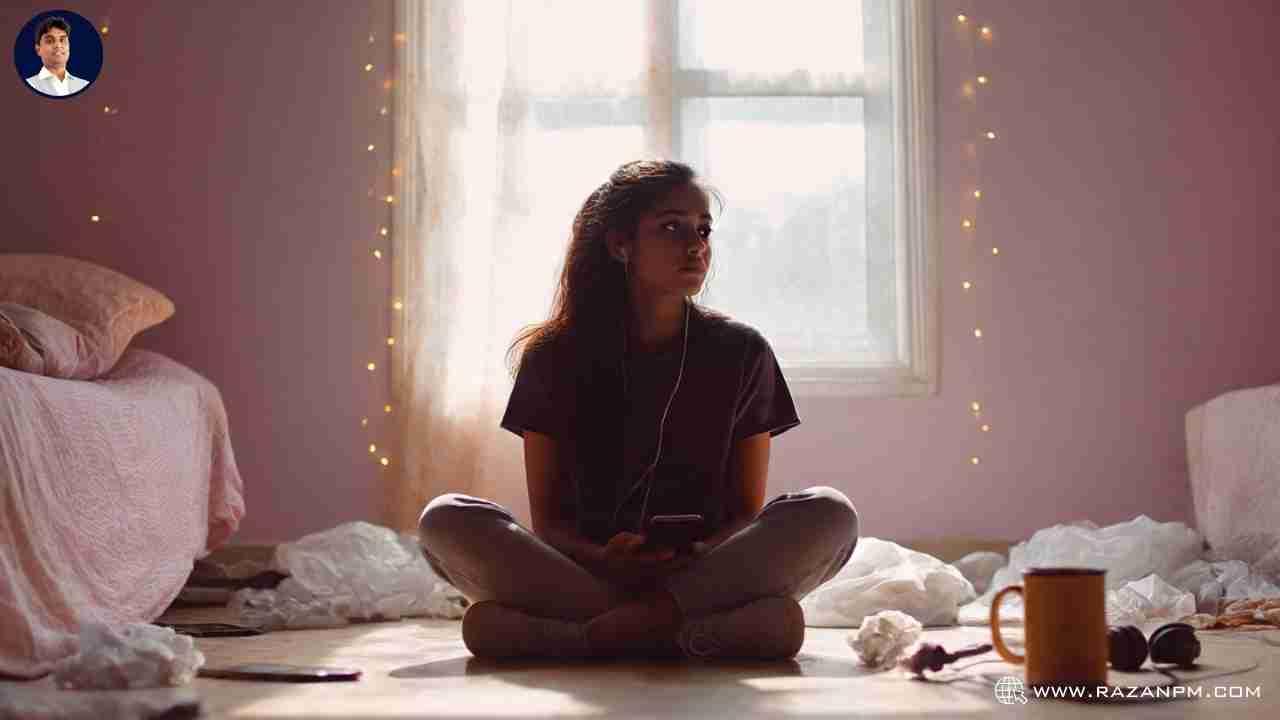
1. Compulsive Checking – You can’t resist checking their “last seen” or stories.
2. Emotional Overdependence – Your mood swings depend on their replies.
3. Social Media Anxiety – Overthinking every emoji, like, or delay.
4. Sleep Disturbance – You scroll late at night hoping for connection.
5. Fear of Abandonment – Feeling easily replaced or ghosted.
6. Comparing Relationships Online – Believing others have “perfect” love stories.
7. Inner Emptiness – Feeling disconnected even when constantly chatting.
If this sounds familiar… you’re not “too sensitive.” You’re human in a digital jungle of emotions.
also read: overthinking messages is killingyour peace
As a Govt.Recognized Counsellor & Mind Healer, I often categorize these experiences under recognized psychological patterns.
According to DSM-5 (Diagnostic and Statistical Manual of Mental Disorders) and ICD-11, these emotional challenges align with:
These aren’t “crazy” labels — they’re reflections of how the digital world reshapes our emotional wiring.
also read: overthinking messages is killingyour peace

So yes — your heartbreak after being ghosted isn’t “dramatic”.
It’s neurochemical imbalance meeting emotional deprivation.
Let me share a story from my therapy room (names changed for privacy).
Riya, 22, bright, funny, confident — until her online boyfriend stopped replying.
Her voice trembled in session:
“He was my person. We talked all day, every day. When he vanished, it felt like losing a part of myself.”
Weeks later, we uncovered the truth — she wasn’t missing him, she was missing the version of herself that felt loved.
That realization shifted her healing journey.
She began journaling, reconnecting offline, and learning to validate herself before seeking it from others.
Months later, she smiled and said,
“I still use my phone, but now I don’t wait for anyone’s text to feel enough.”
That, my friend, is emotional freedom.
also read: blood sugar battles affect mentalhealth
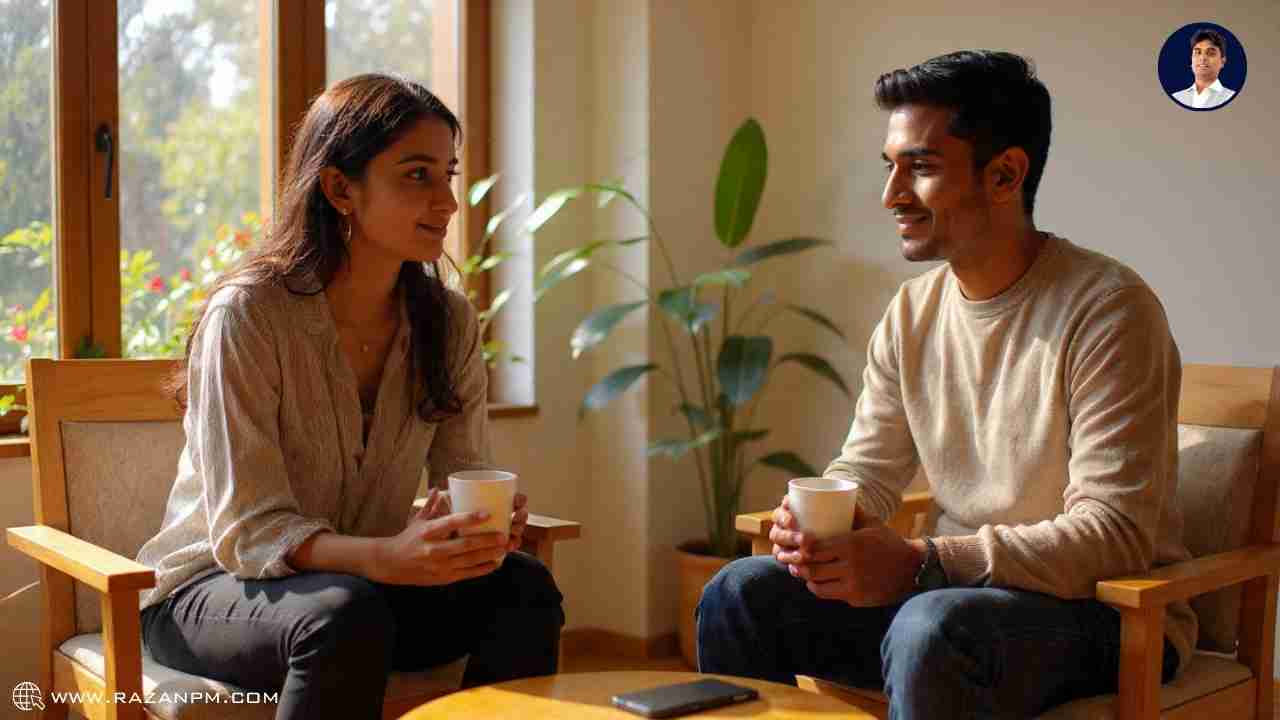
Here’s one simple but powerful practice I share in therapy —
“The 20-Minute Digital Detox Ritual.”
1. Set a timer for 20 minutes before bed.
2. Turn off your phone’s notifications.
3. Write down: 3 feelings you noticed today (even small ones).
4. Identify: 1 real connection moment (even smiling at a stranger counts).
5. End with: “I am enough, even when no one texts me.”
This micro-practice rewires your brain to separate validation from vibration (the phone kind 😉).
Try it for 7 days. You’ll notice calmer sleep, lighter mood, and more self-trust.
also read: how to escape the trap of constantdigital talk?
Of course, this is just the surface.
Loneliness rooted in digital dependency often hides deeper wounds — fear of abandonment, low self-esteem, or childhood attachment pain.
True healing requires guided emotional rewiring, mindfulness, and self-connection therapy — step-by-step.
That’s where professional help can bridge the gap between awareness and transformation.
also read: why digital conversations arekilling real connection?
If this feels familiar, please know —
You’re not “too emotional.” You’re beautifully human, just living in an overstimulated world.
Healing doesn’t mean deleting social media or stopping love; it means learning to love consciously in the digital age.
As a Govt.Recognized Counsellor & Mind Healer. I help people reclaim their peace, self-worth, and emotional balance — both online and offline.
If your heart feels heavy or your mind restless, you don’t have to figure it out alone.
👉 Book your 1:1 Consultation Here — and let’s gently untangle your story together.
"Because you deserve connection that feels real, not just online."
👉Begin Your Journey with a 1 on 1 Consultation
👉Begin Your Journey with a 1 on 1 Consultation
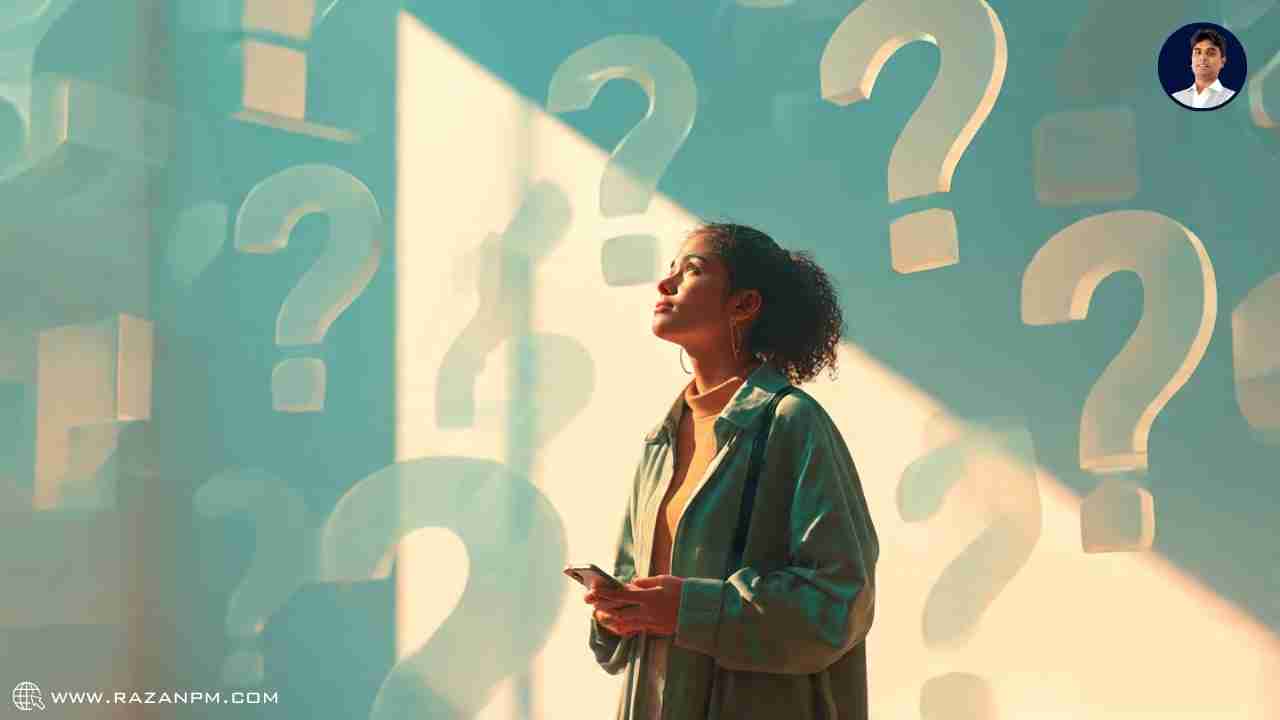
Digital loneliness means feeling emotionally disconnected even while staying constantly online — texting, scrolling, or dating virtually.
Gen Z often experiences it when online validation replaces real emotional connection.
Because they give instant dopamine but little depth. Constant waiting for texts, likes, or replies keeps the brain in anxiety mode.
also read: how to read body language signs indaily life?
Set healthy phone boundaries, practice mindful texting, and remind yourself — “Silence doesn’t always mean rejection.”
Try a short digital detox heart reset for clarity.
Obsessing over “last seen,” losing sleep, mood changes after replies, and feeling restless without online contact.
also read: 8 signs of hidden depression incancer survivors
Yes. Studies show that heavy social media use increases self-comparison and emotional isolation, especially in Gen Z.
A Clinical Psychologist helps identify emotional triggers, build self-worth beyond screens, and teach mindful attachment habits.
also read: 12 behaviors that reveal a man issexually frustrate
Unplug for 20 minutes. Journal your feelings. End your day by affirming — “I am enough even offline.”
Start having voice or face-to-face chats, spend more time offline, and nurture emotional honesty instead of online perfection.
also read: 9 hidden signs she misses physicalaffection
